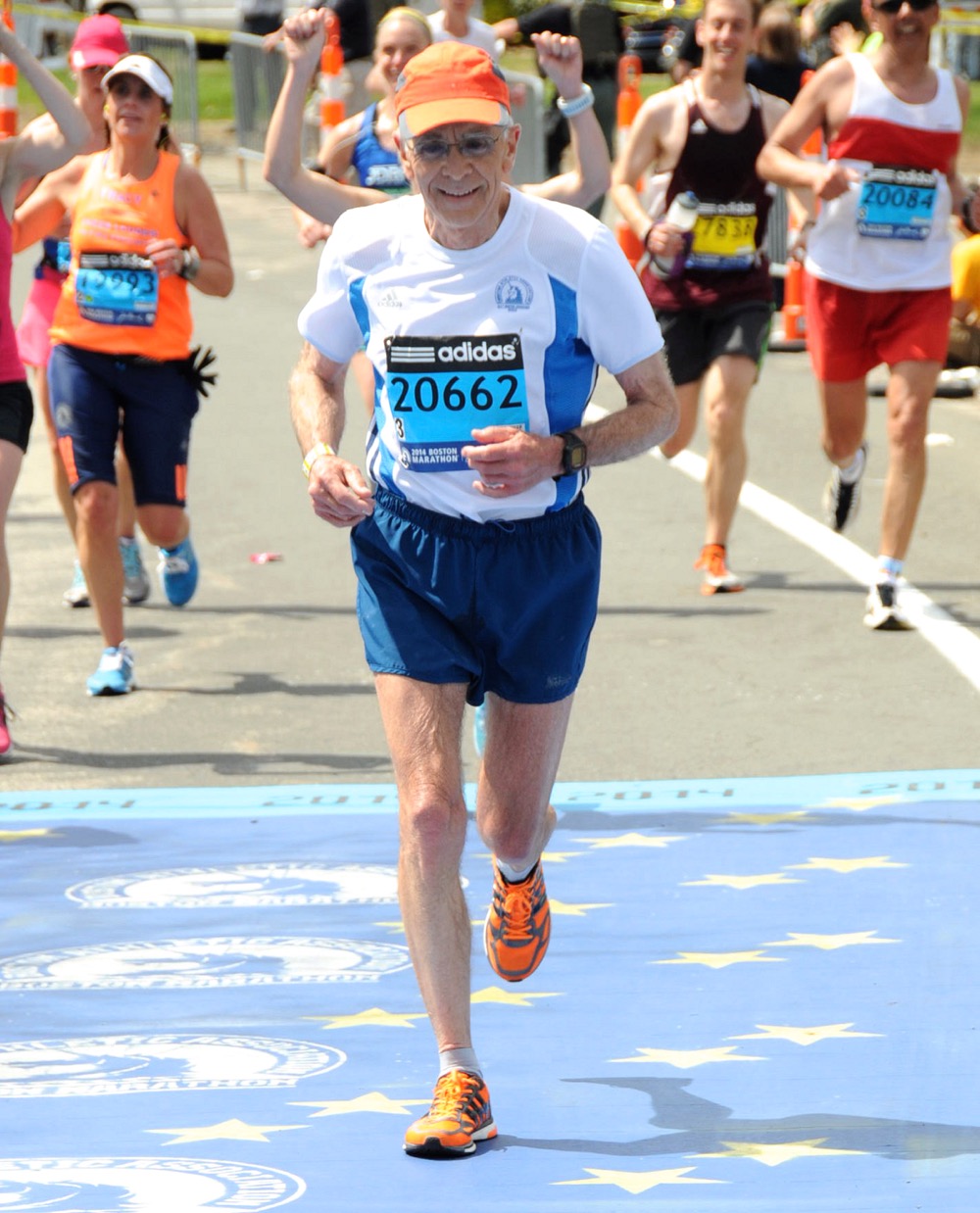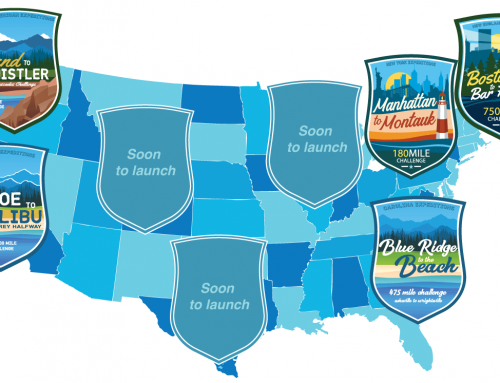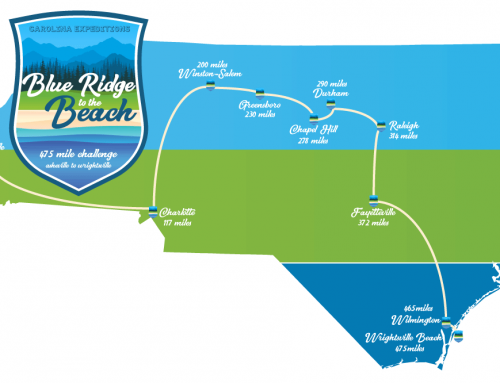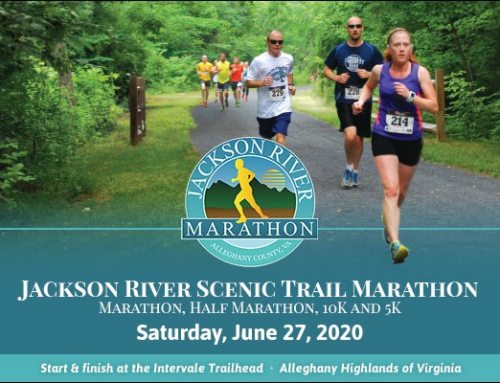By Joe Philpott
When I get injured and can’t run or (horror of horrors) have to miss a race, I am tough to be around. I pout. I scowl. I fuss. The grouch is in the house! Yes, I become an irritable curmudgeon. I suppose my behavior is 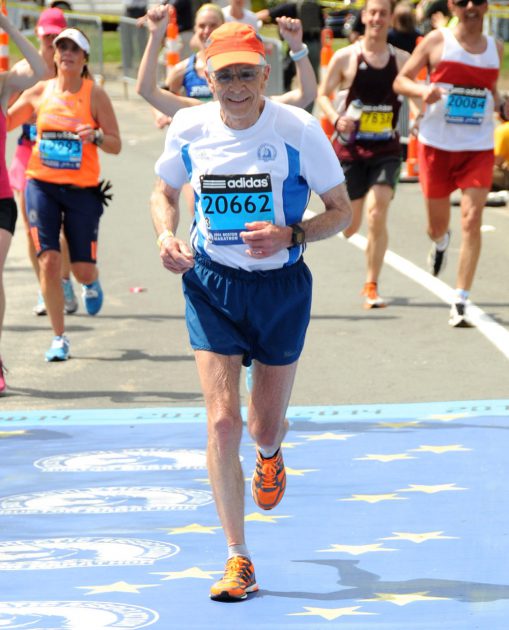 somewhat akin to the stages of grief described by psychiatrist, Elisabeth Kubler-Ross in her book on Death and Dying. Those being “Denial, Anger, Bargaining, Depression and Acceptance”.
somewhat akin to the stages of grief described by psychiatrist, Elisabeth Kubler-Ross in her book on Death and Dying. Those being “Denial, Anger, Bargaining, Depression and Acceptance”.
I believe that most runners think this way. When we get hurt, we often deny the seriousness of the injury. Most of us usually try to complete the workout. Then we try again the next day thinking it wasn’t serious enough to just rest for a few days. We are usually wrong!
When I realize that pulled muscle is going to put me on the sidelines for a while, I get a bit mad. I am angry that it happened just when things were going well. I am angry that it happened just before an upcoming race. I am angry that months of serious training have been wasted. In the middle of my four-month preparation for the Boston Marathon, I strained a hamstring muscle. It made me mad that I might be denied the experience of participating in my lifelong ambition to run Boston.
Then I begin to bargain by searching for a quick solution to the problem. I search the internet for treatment protocols. I look for articles which tell me that the problem will go away quickly. I talk with doctors, looking for confirmation of easy recovery. I look for ways to train around the pain. Most of the time, there just aren’t any silver bullets!
When I finally accept that the problem is going to be around for a while, it’s easy to feel depressed. Because running occupies a big part of my life, I tend to forget that running does not necessarily define me. Maybe deep down I worry about what people will think when I don’t run that big race. After all, I had been talking about running the Boston Marathon for the last year! Will friends see me as weak? Will I ever run another race? Will I get back to serious running anytime soon? Sure it’s depressing!
Always, sooner or later, I come to the realization that it is what it is. I need a rest. I need to do recovery exercises. I need to run less for a while. I need to skip that race. Guess what. The world continues to turn and slowly but surely the pains subside.
We need to keep in mind that we do not lose our fitness, just because we miss a week of training. We need to keep in mind that most injuries will predictably heal with time, rest, and proper treatment. We need to realize that failure to give it a rest simply risks further injury and a longer recovery time.
That hamstring injury I suffered while training for the Boston Marathon healed. I missed almost a month of critical training but then one day I could run. Short and easy at first but longer each day. Then on April 21, 2014, I stood on the line in Hopkinton, Massachusetts for the start of the 2014 Boston Marathon.
Unfortunately, it didn’t end well. That lost month of training hurt. I lost my mind early, and went out too fast. At 10K, I decided to go all in and try for a PR. I lost my legs late and checked into a medical tent at mile 23. But, to quote Alfred Lord Tennyson: “Tis better to have loved and lost, than to never have loved at all.” Running Boston was still an experience of a lifetime.
The moral to the story is this: injuries happen. They do not signal the coming of the end of the world. Yes, you should treat them with respect and determine a mindful course of recovery. No, you will not lose your basic fitness just because you miss a few days of training. Maybe, those few days of rest and cross training are just what the body and mind needed.
# # #
Joe Philpott is a retired banker who often wishes that he had pursued a career in coaching. At 72, he still enjoys competitive age group racing at distances from the mile to the marathon. In addition to 5Ks he has age group wins at the Yuengling Shamrock Marathon, Richmond American Family Fitness Half Marathon, Martinsville Half Marathon, Virginia 10 Miler, Richmond’s HCA 8K, and Blacksburg’s Draper Mile. He loves sharing his insights from five decades of running with developing runners of all ages.


